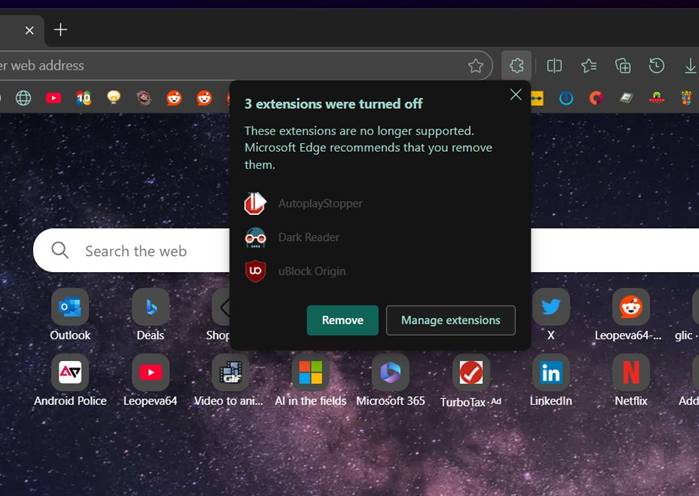
Following in Google’s footsteps, Microsoft has also begun forcibly disabling extensions based on the outdated Manifest V2 API in its Edge browser. Among the affected add-ons are popular ad blockers, some of which were known to “accidentally” block advertisements from Google and Bing.
After installing the latest Edge Canary test build, users have started receiving notifications informing them that certain extensions have been deactivated due to discontinued support. Previously, Google initiated a similar phase-out in the stable version of Chrome.
The update has sparked widespread debate among users. Many had considered Edge as a viable alternative to Chrome after losing support for their preferred extensions, but they are now compelled to explore other options.
Some users have stated that they are prepared to switch entirely to Firefox or Brave should the deactivation extend to widely used ad blockers such as uBlock Origin.
For now, these changes have only affected the test version of Edge, and it remains uncertain whether they will be rolled out to the stable release in the near future. However, the trend is clear: major web browsers are steadily phasing out Manifest V2 in favor of the contentious Manifest V3 API, which has drawn criticism from both developers and users alike.
Microsoft has yet to issue an official statement regarding these changes. Nevertheless, the company appears to be aligning with Google’s policies, gradually discontinuing legacy solutions in favor of more modern standards.


